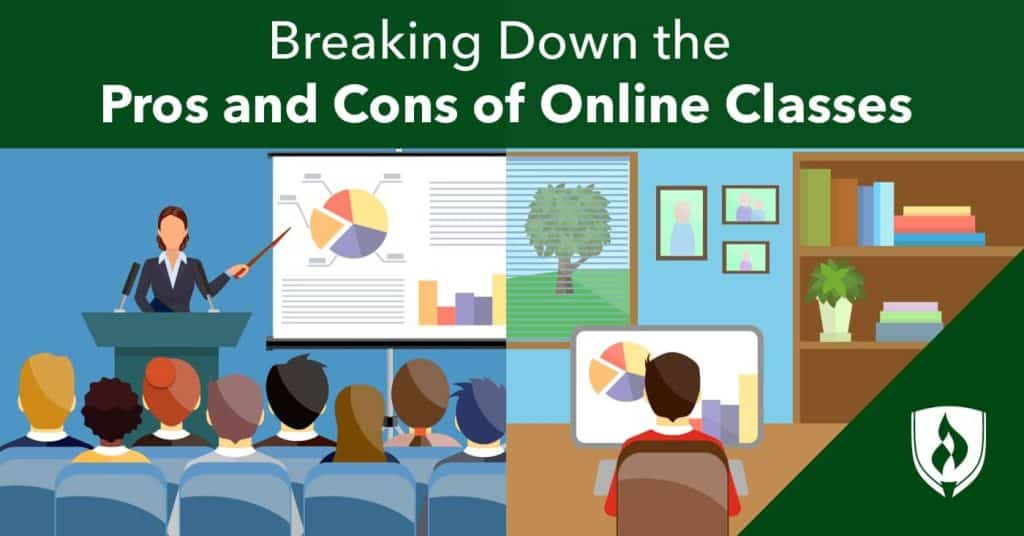What would be your comment if you had to define online education in a few words? Would you say “it is convenient?” Of course, yes. Because it is.
Post-pandemic, online education is making the rounds in the academic sector. This transition from traditional classrooms is an evolution of teaching methods.
But it is undeniable that online learning has its own set of negative and positive impacts. E-learning facilitates the uninterrupted and personalized delivery of education to students.
The education system seems “new normal now”, but exposure to e-learning tools for prolonged hours can raise concern. Similarly, other challenges are equally annoying.
This article discusses the pros and cons of online learning in brief and what else you need to know; we have it described for you. Take a look
Table of Contents
ToggleThe Pros of Online Learning
-
Affordability
The prime reason for which e-learning can leave parents in splits is affordability. E-learning platforms nowadays are arriving with bigger discounts. However, this has been made possible by them as building rent and utility bills are no longer a constraint. The institution has earned the flexibility of reducing its fees. Those platforms that are teaching hundreds of students in one batch may have even lower fees.
-
Improved student attendance
Students grab interest in online education mainly because of the abundance of tools and resources. Interactive live classes and the convenience of completing education at home are the prime reasons. All of this leads to increased classroom attendance. Especially those kids who are afraid of teachers can still pursue education.
-
Strong time management
Strong time management is one such thing that has kept online education a premier choice for most students across the globe. Especially those students who are studying extras aside their general schooling or college studies can effectively manage their course time. All they need to do is record the classroom online, and when they have time, they can resume the online education.
-
Adapt to Every Learning Style
Some students are fast learners, and some are slow learners. Normally, traditional classrooms ignore this vital difference and are focused just on completing the syllabus. But online studies deliver a personalized educational experience, ensuring that students receive the education they want. Simply put, they record the lecture for future reference and learn everything from the teacher in steps through the pause and resume features.
-
Stress Management
One of the significant benefits associated with online learning is that, stress management turns out easier. You can simply hire someone like All Assignment Support who will facilitate timely delivery of your assignment projects. Simply put forward your requirement, the topic, deadline and terms of writing and the platform will get all of your assignments handwritten by graduates and PhD degree holders who are seasoned in their academic profile.
The Cons of Online Learning
-
Less in-person attention
One of the biggest drawbacks of online learning is the lack of in-person attention. However, not every platform would have this issue, as some online platforms offer in-person attention through private groups and chat support. Still, most platforms may lack in-person attention. Especially those platforms that are crowded with students would have this issue. However, some courses may be pre-recorded, and all queries may be covered in the special Q&A section.
-
Reliance on Technology
Online learning has no meaning without networks, technology, and devices, which leads to prolonged exposure to screens. However, it is a prevalent concern, but if a student is pursuing a short-term course for a few hours a day, it may not impact that much. Also, students will be shifting their vision from a book, pen, screen, and other areas of the room, which inhibits the impact of e-learning, which is not like playing video games while constantly starring at the screen. But network issues should not arrive, as education will be disturbed.
-
Potential Distraction
Distractions are an ever-common concern among students. However, it is in our DNA that we will get distracted. Similarly, in the case of online education, distraction can be viewed as a prevalent concern. Usually students study in a very convenient environment, in a room where their favorite things are within reach. But those serious students and parents that are concerned and careful about education are facing no such issues.
-
May miss classroom experience
Well, that’s one of the things that will be missed. But evolution is a part of life, and e-learning is what today’s no-touch culture needs. Especially post-pandemic, online classes or remote classes are growing in popularity. Still, some platforms are making their best efforts to provide a classroom-like experience to the students so that it doesn’t have a worse impact on their emotions and mental strength.
So, is e-learning worth it?
The opinions are still divided because online learning has both pluses and minuses. E-learning comes with its own unique set of drawbacks that range from health to mentality. But comparatively, its positive impacts have more strength.
Over 80% of academic leaders claimed that online education leads to superior learning, as revealed in a survey by Babson College Board. It allows a customized learning experience to students who may be shy to attend offline classroom, who may have no time to attend classroom, or who simply can’t attend classroom.
The new learning approach has even given specially abled people a golden opportunity to pursue education without letting their disabilities become the biggest constraint in their journey.
Also, compared to a standard classroom, where disturbance and shouting appear to be a constraint on focus and retention, online learning provides students with the flexibility to hear the teacher only, follow her commands, and improve their focus on studies.
Most importantly, students do not need to cover an extensive distance to reach their institute. They can make a timely visit to their classroom and complete their courses without missing even a single lecture. In a nutshell, students have access to complete flexibility.
Conclusion
Online learning is currently a choice but will be a necessity tomorrow. Learning remotely is shaping a new academic culture. Parents will have peace of mind by watching their kids build their careers in the comfort of their home. Similarly, students will have the opportunity to customize their education as per their interests and preferences, which will help them improve as per their individual needs. Online learning doesn’t force education, as people learn themselves whatever they wish.











